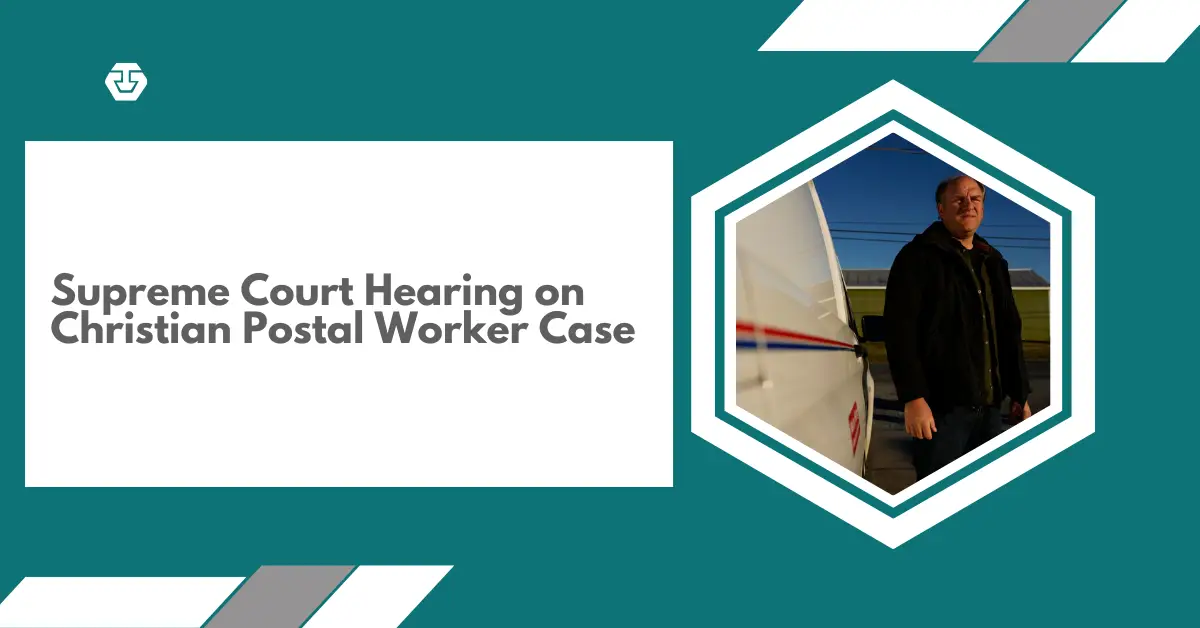The issue of a Christian mail carrier who refused to work on Sundays when he was compelled to deliver parcels for Amazon was debated by the Supreme Court on Tuesday.
It was less obvious what the Postal Service might do about the specific worker’s situation, even while the court appeared to be broadly in accord that organizations like the Postal Service cannot use trivial expenses or hardships to deny such requests to accommodate religious practices.
In the case, a mailman from a small Pennsylvania town is the defendant. The worker was informed that starting on Sundays, he would have to begin delivering Amazon packages as part of his duties. He declined, stating that he uses Sundays for his family and church.
Officials with the U.S. Postal Service initially attempted to find replacements for the man’s shifts, but they weren’t always able to do so. His absence increased the workload on others. The man eventually filed a lawsuit for religious discrimination and resigned.
The justices argued back and forth on when employers must make religious accommodations for their workers. The circumstances of each case matter, according to Justice Ketanji Brown Jackson, who added that “the answer is: it depends.”
The supreme court has been requested to arbitrate the newest religious dispute in this case. The court’s conservative 6-3 majority in recent years has shown special sensitivity to the grievances of religious petitioners.

This includes a decision made by the court a year ago that said a football coach from a public high school should be permitted to pray on the field following games. This term, the court is also considering a case involving a Christian graphic designer who refuses to work with gay couples to develop wedding websites.
Employers are required by federal law, Title VII of the Civil Rights Act of 1964, to respect the religious beliefs of their workers, unless doing so would place a “undue hardship” on the company.
However, Trans World Airlines v. Hardison, a 1977 Supreme Court decision, states in part that employers might refuse to make religious accommodations for staff members if those accommodations “impose more than a de minimis cost” on the company.
According to three of the current justices, the court should reexamine the Hardison case. On Tuesday, other justices also said the “more than de minimis cost language” was problematic.
Even the administration’s senior Supreme Court attorney, Solicitor General Elizabeth Prelogar, who was defending the Post Office, told the judges that the Hardison case requires an employer who wishes to refuse an accommodation to show more.
More articles that are identical to this one are provided below:
- Andrew Freedman Veteran News and Entertainment Publicist Died at Age 67
- After Severe Storms Hit California, Newsom Asks Biden To Declare A State Of Emergency
According to her, requests for religious accommodations are made most frequently when employees ask for schedule modifications, such as time off for midday prayers or the Sabbath, or for exemptions from a company’s dress code or grooming standards.
They also arise when a worker requests to put up a religious symbol at work. Hardison should be reexamined, according to Justices Neil Gorsuch, Clarence Thomas, and Samuel Alito.
Gorsuch proposed that the justices may simply state that “some courts have taken this de minimis language” too far and that there has “been a serious misunderstanding.” He said the justices might complete “a good day’s work and put a period at the end of it by saying that that is not the law.”
However, there was less consensus among the justices over what should be done given the facts of the case before them involving Gerald Groff, a former USPS employee who worked in Pennsylvania’s Amish Country. Groff filled in for other mail carriers on days when they were off for many years.
However, Groff objected when a contract between Amazon.com and the Postal Service mandated that carriers begin delivering goods on Sundays. Groff initially moved to a more remote post office that didn’t yet offer Sunday deliveries to escape the shifts, but soon that post office was compelled to provide them with them as well.
Whenever Groff had a Sunday appointment, another carrier had to go to work or his place remained vacant. Groff’s absences, according to officials, heightened tension and harm morale. Additionally, it required more Sunday mail delivery than usual by other carriers.
According to Justice Elena Kagan, Groff’s Sunday absences were allegedly causing hardship, and the Postal Service did nothing wrong by refusing accommodations.
The Postal Service experienced “one employee quit, one employee transfer, and another file a grievance” due to Groff’s Sunday absences, Justice Brett Kavanaugh noted.
However, some justices, such as Justice Amy Coney Barrett, made the suggestion that the court could want to remand Groff’s case to lower courts for additional review.
In 2019 Groff chose to leave rather than wait to be fired. His attorney Aaron Streett petitioned the Supreme Court to overturn the Hardison decision and rule that employers must demonstrate “significant difficulty or expense” before rejecting a religious accommodation.
This post will be helpful to you and you will enjoy reading it. We hope it has been informative and engaging. Comment below to let us know if you found this content helpful.

Leave a Reply